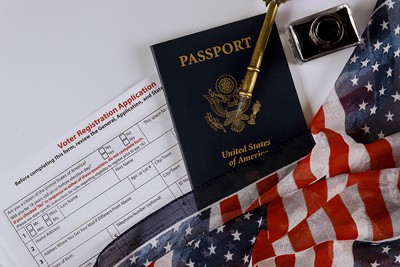Reuniting Families in Florida: A Guide to Family-Based Immigration Process
Family-based immigration is a pivotal pathway for individuals seeking to unite with their loved ones in Florida.
This process enables immediate relatives, including spouses, unmarried children under the age of 21, and parents of U.S. citizens, as well as certain family members of lawful permanent residents (LPRs), to obtain legal residency in the United States. These provisions are designed to promote family unity, acknowledging that the emotional and social bonds of family are fundamental to the well-being of immigrants and citizens alike.
Navigating the intricacies of family-based immigration requires a comprehensive understanding of U.S. immigration laws, regulations, and procedures.
Applicants must navigate a complex legal framework that includes visa petitions, priority dates, and the adjustment of status processes.
For many, the journey to family reunification in Florida is fraught with challenges and can be prolonged due to legal considerations and the meticulousness required for maintaining legal status. Access to knowledgeable legal counsel and reliable immigration resources is essential for overcoming these obstacles and successfully navigating the path to reunification.
Key Takeaways
- Family-based immigration is a legal means to family reunification.
- A thorough understanding of immigration laws is crucial.
- Access to legal and immigration resources aids the process.
Understanding Family-Based Immigration
Family-Based Immigration in the United States allows eligible individuals to bring their family members to live in the country legally. This process is guided by a clear set of rules and requirements which must be understood to achieve successful reunification.
Eligibility Criteria for Family-Based Immigration
In family-based immigration, the applicant must be a U.S. citizen or a lawful permanent resident (LPR), also known as a green card holder. The citizen or LPR can petition for certain family members, which includes spouses, children, parents, and siblings.
● U.S. Citizens can petition for:
- Spouses
- Unmarried children under 21 years of age
- Parents (if the citizen is at least 21 years old)
- Unmarried children over 21 years of age (known as “sons and daughters”)
- Married sons and daughters of any age
- Brothers and sisters (if the citizen is at least 21 years old)
● Lawful Permanent Residents can petition for:
- Spouses
- Unmarried children under 21 years of age
- Unmarried sons and daughters over 21 years of age
Each category has specific conditions and may affect the family visa application process in terms of wait times and availability of visas.
Our Florida-based team specializes in all visa categories, ensuring your journey toward living and working in the U.S. is smooth and successful. Whether it’s employment-based visas, family sponsorships, or student visas, we have the expertise to guide you through every step. Contact us today to start your path to a new beginning with trusted legal experts by your side.
Categories of Family Visas
There are two main categories in the family visa system: Immediate Relative Visas and Family Preference Visas. The availability of these visas varies based on the relationship and legal status of the petitioner.
● Immediate Relative Visas (IR): These visas are available for immediate relatives of U.S. citizens. There is no annual limit on the number of visas issued in this category.
- IR-1: Spouse of a U.S. citizen
- IR-2: Unmarried child under 21 years old of a U.S. citizen
- IR-3: Orphan adopted abroad by a U.S. citizen
- IR-4: Orphan to be adopted in the U.S. by a U.S. citizen
- IR-5: Parent of a U.S. citizen who is at least 21 years old
● Family Preference Visas:
- F1: For unmarried sons and daughters of U.S. citizens and their minor children
- F2A: For spouses and children (under 21) of LPRs
- F2B: For unmarried sons and daughters (21 or over) of LPRs
- F3: For married sons and daughters of U.S. citizens, and their spouses and minor children
- F4: For brothers and sisters of U.S. citizens, and their spouses and minor children, provided the U.S. citizens are at least 21 years old
These categories are subject to annual numerical limits, and the categories of Family Preference Visas often have longer waiting periods due to caps on the number of visas that can be issued each year.
The Path to Reunification
Reuniting families in Florida through family-based immigration is a process governed by specific forms and stages. Applicants must navigate a systematic procedure to facilitate the arrival or adjustment of their family members in the United States.
Application Process for Family Visas
To initiate family-based immigration, the petitioner, a U.S. citizen or lawful permanent resident (LPR), files Form I-130 (Petition for Alien Relative). This is the essential step in establishing a familial relationship with the beneficiary.
Upon approval, the family member falls into one of two categories: immediate relatives of U.S. citizens, which includes spouses, unmarried children under 21, and parents (if the U.S. citizen is 21 years or older), or a preference category that varies based on the familial relation and the status of the petitioner.
Adjustment of Status and Consular Processing
Once the I-130 is approved, the beneficiary may proceed with one of two pathways depending on their location.
If they are already in the United States, the next step is to file for Adjustment of Status through Form I-485, allowing them to become an LPR without returning to their home country.
Alternatively, individuals outside the U.S. undergo Consular Processing. In this stage, the National Visa Center (NVC) plays a crucial role in collecting fees, forms, and documents before scheduling an interview at the U.S. embassy or consulate in the beneficiary’s country. It is through this interview that eligibility for an immigrant visa will be determined, facilitating the family reunification process in Florida.
Let Croce & Associates, Florida’s leading immigration lawyers, provide you with clarity and confidence. We offer comprehensive support for all your immigration needs, from visa applications to permanent residency and citizenship. Don’t let complexities deter your dreams; reach out now for personalized and professional legal assistance that paves the way to your success.
Legal Considerations and Challenges
In the context of reuniting families within Florida, navigating the multifaceted legal landscape of family-based immigration involves understanding various legal prerequisites and overcoming numerous challenges. This section elucidates some common legal hurdles and provides tips on selecting competent immigration legal services.
Common Legal Hurdles in Family-Based Immigration
Family-based immigration—a process that facilitates the coming together of immediate and extended family members—presents several legal hurdles.
Immediate relatives of U.S. citizens, including spouses, unmarried children under the age of 21, and parents (provided the U.S. citizen child is at least 21 years old), may have a slightly more straightforward path with unlimited visas available.
Extended family members, such as adult children, siblings, and married children of U.S. citizens, as well as spouses and children of permanent residents, must navigate a system with numerical limitations, known as family preference categories.
One major hurdle is the extensive backlog and wait times for these categories, which can vary significantly based on the applicant’s country of origin and the specific relationship to the U.S. sponsor.
Applicants must also contend with stringent application procedures that require thorough documentation proving the legitimacy of family relationships. Accurately filing forms, meeting eligibility requirements, and overcoming potential inadmissibility grounds are crucial steps that often necessitate professional legal guidance.
How to Find and Choose Immigration Legal Services
When seeking immigration legal services, it is crucial to find a competent attorney who specializes in family-based immigration law. Researching and selecting the right legal professional involves:
- Verifying credentials: Ensure the attorney is licensed and in good standing with the state bar association.
- Considering experience: Look for legal professionals with extensive experience in family-based immigration, such as those at Croce & Associates, who can navigate complex immigration laws and have a proven track record of successfully handling similar cases.
- Evaluating client reviews: Reading past client experiences can provide insight into the attorney’s success in reuniting families and their overall approach to client service.
Prospective clients should also inquire about the attorney’s familiarity with local immigration offices and the United States Citizenship and Immigration Services (USCIS) policies, as local practices can vary and affect case processing times and outcomes.
Maintaining Legal Status in Florida
Navigating the complexities of immigration law is critical in ensuring families remain united legally in Florida. Securing and maintaining legal family-based immigration status requires meticulous adherence to existing regulations and conditions.
Conditions for Maintaining Legal Family-Based Status
For those in Florida who have successfully navigated the family visa application process, maintaining legal status can be as delicate and significant as acquiring the visa itself.
It’s essential that visa holders remain aware of their responsibilities to abide by the following conditions:
- Timely Renewals: Family visa holders must apply for renewals within the appropriate period before their current status expires.
- Address Updates: Any changes in residential address should be reported to the U.S. Citizenship and Immigration Services (USCIS) within ten days of moving.
- No Unauthorized Employment: Engaging in employment without proper authorization could result in status violations.
- Obeying The Law: Any criminal activity can affect immigration status and can lead to deportation proceedings.
Services and Resources for Immigrants
Navigating the complex landscape of family-based immigration in Florida requires reliable access to a range of services and resources. Immigrants seeking to unite with family members can utilize various forms of assistance to streamline the process.
Accessing Immigration Assistance
Immigrant families often need professional legal guidance to manage the intricacies of immigration laws.
Immigration legal services provide a vital resource, offering expert advice on matters such as sponsorship, visa applications, and the adjustment of status procedures.
For instance, organizations such as Croce & Associates Immigration Law Services are known for their expertise in family-based immigration, assisting clients with the filing of visa petitions and permanent resident applications.
It’s essential for immigrants to engage with well-established legal service providers to ensure they receive accurate and current information.
Community Support for Families
The integration of immigrant families into local communities is bolstered by a network of support services that cater to various needs.
Organizations aim to empower Florida’s immigrant families, amplifying their voices and enhancing the lives of their children.
Entities like the Children of Immigrant Families Coalition of Florida focus on advocacy and policy platforms to address the long-term needs of immigrant families. They cover areas such as health, education, immigration, and financial stability.
By tapping into such community support structures, immigrant families can find holistic assistance and a sense of belonging in their new environment.
Summary
- Family-based immigration is a critical legal pathway for reuniting individuals with their family members in Florida, focusing on immediate relatives and certain other family members of U.S. citizens and Lawful Permanent Residents (LPRs).
- The process emphasizes the importance of family unity for the emotional and social well-being of both immigrants and citizens.
- U.S. citizens are eligible to sponsor spouses, unmarried children under 21, parents (if the citizen is 21 or older), unmarried children over 21, married children, and siblings.
- Lawful Permanent Residents (LPRs) can sponsor spouses and unmarried children under and over 21 years old.
- Immediate Relative Visas (IR) for close family of U.S. citizens have no annual cap, facilitating quicker reunification.
- Family Preference Visas (including F1, F2A, F2B, F3, F4) cover broader family relationships and face annual caps, causing longer wait times.
- The visa application process initiates with Form I-130 to establish familial relationships, followed by Adjustment of Status (Form I-485) for applicants within the U.S., or Consular Processing for those abroad.
- Legal complexities include navigating extensive backlogs, especially for Family Preference Visas, and stringent documentation requirements to prove legitimate family relationships.
- Selecting competent legal counsel is crucial; it involves verifying the attorney’s credentials, assessing their experience in family-based immigration, and evaluating client reviews.
- Maintaining legal status requires adherence to regulations such as timely renewals, reporting address changes, avoiding unauthorized employment, and obeying all U.S. laws.
Frequently Asked Questions
Navigating family-based immigration can be complex, particularly in Florida where specific procedures and timelines are in place.
The following subsections address some of the most common inquiries regarding family reunification visas.
Who is eligible for family-based immigration visas in Florida?
Individuals who may apply for family-based immigration visas include unmarried sons and daughters of U.S. citizens and their minor children (F1 Category), spouses and children of permanent residents (F2A Category), and other family members as specified by U.S. immigration law.
What is the average processing time for a family reunification visa in Florida?
The processing time for family reunification visas varies depending on the visa category and the current workload of USCIS. It can typically range from several months to years.
Which USCIS form is required to apply for family reunification?
The Form I-130 (Petition for Alien Relative) is the standard document required to establish the relationship between the U.S. citizen or permanent resident and the foreign relative.
What are the requirements for a relative to sponsor a family member in Florida?
A sponsor must be a U.S. citizen or a lawful permanent resident, meet certain income requirements, and pledge financial support for the family member they are sponsoring.










Leave a Reply
Want to join the discussion?Feel free to contribute!